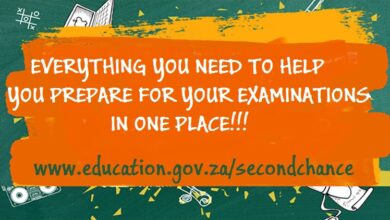How to move to Australia on a skilled visa

How to move to Australia on a skilled visa
Presented by Sable International
SOURCE | BusinessTech
_____
How to move to Australia?
Australia is consistently ranked as one of the most desirable places to live in the world. It’s a safe country with good public healthcare and great job security. It’s why so many South Africans hope to migrate Down Under. Here’s how you can move to Australia on a skilled visa.
Visit them there to discuss the best options for you and your family.
Australia is particularly appealing for South Africans because of the cultural similarities: Australians speak English, play cricket and rugby, enjoy the outdoors and even get together for a braai (or “barbie”) on weekends.
The easiest way for South Africans to move to Australia is through skilled migration and, at the moment, Australia is facing a huge skills shortage and is actively seeking foreign workers across a variety of occupations, including:
- Accountants
- Pilots
- Programmers
- Architects
- Mechanics
- Plumbers
- Builders
- Carpenters
- Electrician
- Restaurant managers
- Chefs
- Hotel managers
- Engineers
- Database administrators
- Grape growers
- Sheep farmers
- ICT specialists
- Teachers
- And more…
However, it can be difficult to know where to start, even if you know you have an in-demand skill. There are hundreds of different visas to choose from and as many as 20 different working visas alone.
Below, Sable International explains some of the most popular Australian visas and outline why they believe they’re the best options for South Africans seeking to migrate in 2022 and beyond.
Sable International will be at the Global Citizenship and Emigration Expo in October and November. Join us to discuss the best options for you and your family one-on-one.
Could you qualify for an Australian skilled visa?
In order to qualify for an Australian skilled visa you will need to meet the following criteria:
- You must be under the age of 45
- You must work in a skilled occupation
- You might need to have a skills assessment done in that occupation to prove your knowledge and abilities
- You must be able to pass an English language test
- You must be in good health and of good character
- You will need to have above a certain total of “points”, which are awarded for factors such as age, experience and education. The Australian government has a points calculator available on its website where you can check your total points according to the visa you wish to apply for.
Finally, you will need to be invited to apply. Before you submit your application for a visa, you will need to submit an expression of interest (or EOI), which adds your information to a large database.
From that database, the Australian Home Affairs department cherry-picks who it will invite to apply each month.
The Skilled Independent (subclass 189) visa
The Skilled Independent (189) is the most sought-after visa for South Africans who wish to migrate to Australia. It is a permanent visa that allows the holder to live anywhere in Australia and work in any profession.
This is what the “independent” in its name refers to: this visa is independent of any nomination criteria. What matters most is how in demand your occupation is and the number of points you achieve in the points test.
The government used to issue an incredibly large number of these every year. However, the visa failed to deliver targeted skills into the areas of Australia that really needed them, so in recent years there has been a strict quota on 189s.
The good news is that the Australian government has released its planning levels for the new financial year (Australia’s financial year starts in July) and has raised the quota of 189s from 6,500 places last year to 16,652 this year.
Recent examples of successful occupations in this visa include nurses, general practitioners, childcare managers, early childhood teachers and university lecturers.
State Nominated (subclass 190) visa
This is Sable International’s new favourite visa and what we believe the majority of South Africans should be aiming for if they wish to migrate to Australia.
The government is particularly fond of awarding this visa as it is a crucial part of the plan to deliver skills to where they’re needed in Australia. As a result, there are generally large quotas for the 190. For the 2022-2023 financial year, the quota has risen from 11,200 places to 20,000.
While Skilled Independent visa nominations come from the national government, based on the national skills shortage list, the 190’s nominations come from state governments, based on what skills are needed in their local labour markets. This often means greater opportunity for a broader range of skills.
Like the 189, the 190 is a permanent residency visa, which means that you’re a permanent resident of Australia from the moment you arrive and can work in any profession you like without worrying about visa renewals.
However, you will need to live and work in the state that nominated you for at least two years.
States which are more popular, like New South Wales and Victoria, are more difficult to migrate to because they can be very specific about the type of skills they’re looking for and they have a large pool of people to choose from.
Whereas states like Western Australia or South Australia are less popular, and therefore it’s generally easier to get into those particular states.
There are six different states and two territories, which all have their own lists. As migration agents, we can find out which state you might qualify for and identify where the opportunities might lie for you.
Regional State Nominated (subclass 491)
When you hear “regional” you might think of a great sandy desert, of the Outback, of creepy crawlies and spiders and snakes.
Yes, the Outback is in regional Australia, but not all of regional Australia is like the Outback. In fact, there are plenty of beautiful towns and cities in regional areas, including the famous Gold Coast and Sunshine Coast.
There are many occupations on the regional skills lists which you will not find on the 190 and 189 lists.
For example, “cafe and restaurant manager” and “graphic designer”. This means that it’s often much easier to get into regional areas than the more populated metros.
The Regional State Nominated visa is similar to the State Nominated visa. The main difference is that it is a temporary visa. So you would not enter Australia as a permanent resident, but as a temporary visa holder with a defined pathway to permanent residency.
The initial visa is valid for five years and you would need to live and work in the regional area for that time. Provided you meet this requirement, you should be able to apply for permanent residency after five years.
Most temporary visas don’t offer access to Australia’s public healthcare (Medicare). However, the 491 is an exception. If you move to Australia on a 491, you will have full access to Medicare.
The quota for subclass 491 has increased from 11,200 places last year to 25,000 places this year, which shows how essential the Australian government believes skilled applicants are to the regional areas.
The skills shortage lists and quotas for these visas are constantly changing, so if you qualify now Sable International would recommend you take the chance and apply. There’s no guarantee that you’ll be able to in the future.
Sable International’s migration agents can help determine whether there’s a pathway for you and take you through the whole process from start to finish.
Come speak to them at the Global Citizenship and Emigration Expo from 27 October – 9 November in Johannesburg, Pretoria, Durban and Cape Town.
Tickets are free, so start your journey to global citizenship today.
Alternatively, get in touch with Sable International’s Australian migration team at [email protected] or +27 (0) 21 657 1526
The end.
_____
_____




